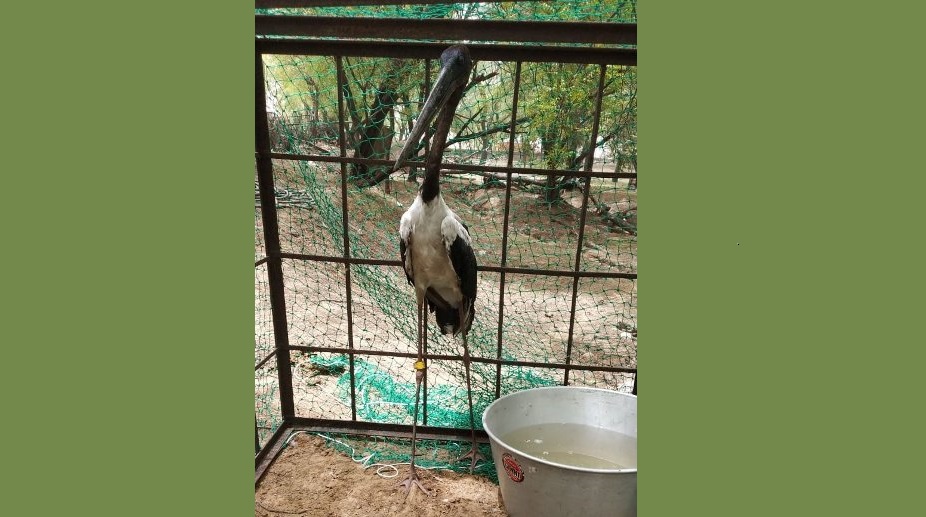A rare rescue
In a rare rescue operation in the state, the Haryana Forest Department spent as many as five days chasing a…
A black-necked stork, which was in serious trouble after its beak got stuck in a plastic ring, was rescued by a team of wildlife conservationists after a week-long operation.

(Photo: Twitter/@nehaa_sinha/Haryana forest department)
A black-necked stork, which was in serious trouble after its beak got stuck in a plastic ring, was rescued by a team of wildlife conservationists after a week-long operation. The bird was first photographed with its beak in the ring by birdwatcher Manoj Nair.
The bird was spotted in Gurgaon’s Basai wetland, where dumping is common.
Advertisement
As the photo went viral, concerns for the bird as well as the threat to the wetland from rampant development and dumping rose.
Advertisement
A team of officials from Bombay Natural History Society (BNHS), Nature Conservation Foundation and Haryana wildlife department continuously tracked the bird and made several attempts to catch it so as to relieve it of the ring.
They got the opportunity on Wednesday after the bird slowed down. The officials reportedly nabbed the bird at Najafgarh and removed the plastic from around its beak.
“It’s a rare case of survival…the bird has been rescued and it’s in a healthy shape. Over the last six days, rescue team of birders and forest department observed that it was wetting its beak and maybe that’s why it survived,” Nair told The Indian Express.
Shyam Sunder, District Forest Officer, (Wildlife) told the daily that the bird appears to be healthy and has eaten some fish. It will be kept under observation and will be released in the wild on Thursday.
According to The Tribune, a private property which is used as a dumping ground is close to the wetland. The owner of the ground has been asked to clear the accumulated plastic within 24 hours. The Haryana Pollution Control Board had also issued a notice to the municipal corporation of Gurugram (MCG) for its failure to keep the area clean.
The black-necked stork is classified as a Near Threatened Species under the IUCN list. Though found across the wetlands of the Indian Subcontinent and Southeast Asia, the largest population of the stork is found in Australia.
The Basai wetland is a birding hotspot visited by all kinds of birds including endangered and critically endangered bird species such as Egyptian vulture and White-rumped vulture.
Advertisement